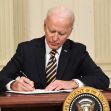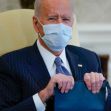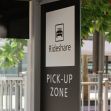Last week, Congress passed legislation on a second stimulus package that would aid Americans with up to $600 in direct payments. The legislation happens to be the longest bill ever passed by Congress, coming in at a whopping 5,593 pages. The legislation is a combination of the second coronavirus relief package, which allocates $900 billion to pandemic relief efforts, and another $1.4 trillion allocated to a spending bill.
What Is in the Pandemic Relief Package?
Individual benefits in the bill will include $600 direct payments for children and adults. The payments will be made out to individuals who earn between $75,000 and $99,000. Unemployment benefits would also be extended and include $300 weekly payments. Unemployment benefits would also be expanded to cover gig workers, freelancers, and other self-employed workers.
The eviction moratorium that was put in place to keep renters from losing their homes will be extended until the end of January. Additionally, the bill has set aside $25 billion in rental assistance as well, and $13 billion has also been set aside for the Supplemental Nutrition Assistance Program (SNAP).
Small businesses will also receive assistance from the $284 billion that has been allocated for the Paycheck Protection Program loans (PPP loans). The new PPP loans have been expanded so that small business owners have more flexibility in using the funds, although 60% of the loan must still be allocated for payroll spending. The PPP loans have been expanded to include nonprofits, local newspapers, and TV and radio shows. There is also $15 billion set aside for aiding live venues, including independent movie theaters and other live production venues.
The transportation industry will receive about $45 billion in aid. This includes $1 billion for Amtrak, $10 billion for highway restorations, $14 billion for mass transit agencies, and $16 billion for the airline industry.
K through 12 private education will receive just under $3 billion, while public schools and universities will receive just over $80 billion.
New Stimulus Package Draws Mixed Criticism
The coronavirus relief package has drawn mixed criticism, with many arguing that its impact will not be enough to help struggling Americans. An entrepreneur and investor on the popular TV show Shark Tank shared with CNBC that "the package was not enough." In a recent poll conducted by Morning Consult, over half of those polled said the $600 direct payment is not enough as well.
Tuesday evening, President Trump weighed in on Twitter through a video statement in which he expressed his disappointment at the minimal funds distributed through direct payment. Trump suggested that direct payments should be raised to $2,000 per individual and $4,000 per couple. In his video statement, Trump expressed, "A few months ago, Congress started negotiations on a new package to get urgently-needed help to the American people. It's taken forever. However, the bill they are now planning to send back to my desk is much different than anticipated. It really is a disgrace."
Much of the public outrage also stems from the fact that the legislation that spelled out the details of the new pandemic relief package passed with a much larger spending bill tacked onto it. This spending bill has raised the eyebrows of many as it allocates just over 1.4 trillion dollars, much of which will be going to other countries.
Trump highlighted that the bill would pay out "$85.5 million for assistance to Cambodia; $134 million to Burma; $1.3 billion for Egypt and the Egyptian military, which will go out and buy almost exclusively Russian military equipment; $25 million for democracy and gender programs in Pakistan; $505 million to Belize, Costa Rica, El Salvador, Guatemala, Honduras, Nicaragua and Panama; $40 million for the Kennedy Center in Washington, D.C., which is not even open for business, $1 billion for the Smithsonian and an additional $154 million for the National Gallery of Art."
Like many other critics, Trump has emphasized now is not the time to be sending money to other countries when Americans need it most. In response to Trump's proposal to increase the direct payments, Nancy Pelosi tweeted out, "Republicans repeatedly refused to say what amount the President wanted for direct checks. At last, the President has agreed to $2,000 — Democrats are ready to bring this to the Floor this week by unanimous consent. Let’s do it!”
President-elect Biden has also weighed in on the debate expressing that the new coronavirus relief bill was really a "down payment." He explained that in the coming month, his administration would pass another stimulus bill. Biden adds, "Congress did its job this week and I can and I must ask them to do it again next year."
Senator Chuck Schumer echoed the sentiment by tweeting out, "Trump needs to sign the bill to help people and keep the government open, and we're glad to pass more aid Americans need."
Although the bill has passed, Trump has asked for it to be amended and has threatened to veto it if necessary.






